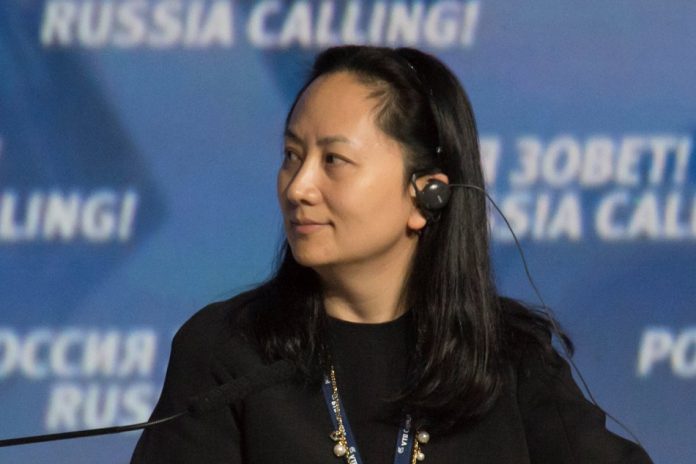
VANCOUVER – A top executive of Chinese telecoms giant Huawei Technologies Co Ltd was granted bail by a Canadian court on Tuesday, 10 days after her arrest in Vancouver at the request of US authorities sparked a diplomatic dispute.
Meng Wanzhou, Huawei’s chief financial officer and the daughter of its founder, faces US claims that she misled multinational banks about Iran-linked transactions, putting the banks at risk of violating US sanctions.
In a court hearing in Vancouver, British Columbia, Justice William Ehrcke granted C$10 million ($7.5 million) bail to Meng, who has been jailed since her arrest on Dec. 1. The courtroom erupted in applause when the decision was announced. Meng cried and hugged her lawyers.
Among conditions of her bail, the 46-year-old executive must wear an ankle monitor and stay at home from 11 p.m. to 6 a.m. Five friends pledged equity in their homes and other money as a guarantee she will not flee.
If a Canadian judge rules the case against Meng is strong enough, Canada’s justice minister must next decide whether to extradite her to the United States.
If so, Meng would face US charges of conspiracy to defraud multiple financial institutions, with a maximum sentence of 30 years for each charge.
The arrest of Meng has put a further dampener on Chinese relations with the United States and Canada at a time when tensions were already high over a trade war and US accusations of Chinese spying.
US President Donald Trump told Reuters on Tuesday he would intervene in the US Justice Department’s case against Meng if it would serve national security interests or help close a trade deal with China.
Speaking in Beijing, Chinese foreign ministry spokesman Lu Kang said Meng’s arrest “was a mistake from the start.”
“We have already made clear our position to the United States and Canada, who should immediately correct their mistake and release Meng Wanzhou,” he told a daily news briefing.
“Any person, especially if it is a leader of the United States, or a high-level figure, who is willing to make positive efforts to push this situation towards the correct direction, then that, of course, deserves to be well received.”
China had threatened severe consequences unless Canada released Meng immediately, and analysts have said retaliation from Beijing over the arrest was likely.
The US State Department is considering issuing a travel warning for its citizens, two sources said on Tuesday.
The Canadian government was considering issuing a similar warning, Canada’s CTV network reported. Reuters was not able to confirm the report.
Earlier on Tuesday, the Canadian government said that one of its citizens in China had been detained.
The International Crisis Group think-tank said on Wednesday it had received no information from Chinese officials about the detention of its employee, former Canadian diplomat Michael Kovrig, and that it was seeking consular access to him.
The Chinese ministry spokesman, Lu, said he had nothing he could say on the details of the case, but said the ICG was not registered in China as a non-governmental organization and Kovrig could have broken Chinese law.
The Canadian government said it saw no explicit link to the Huawei case.
However, Guy Saint-Jacques, Canada’s former ambassador to China, asked by the Canadian Broadcasting Corp whether the Kovrig detention was a coincidence, said: “In China there are no coincidences…If they want to send you a message they will send you a message.” (Reuters)



